The Right Partners & The Right Processes





We catch up with Randy Drenth, Head of Logistics at Swisscom, to give an update on his company’s successful logistic strategy.



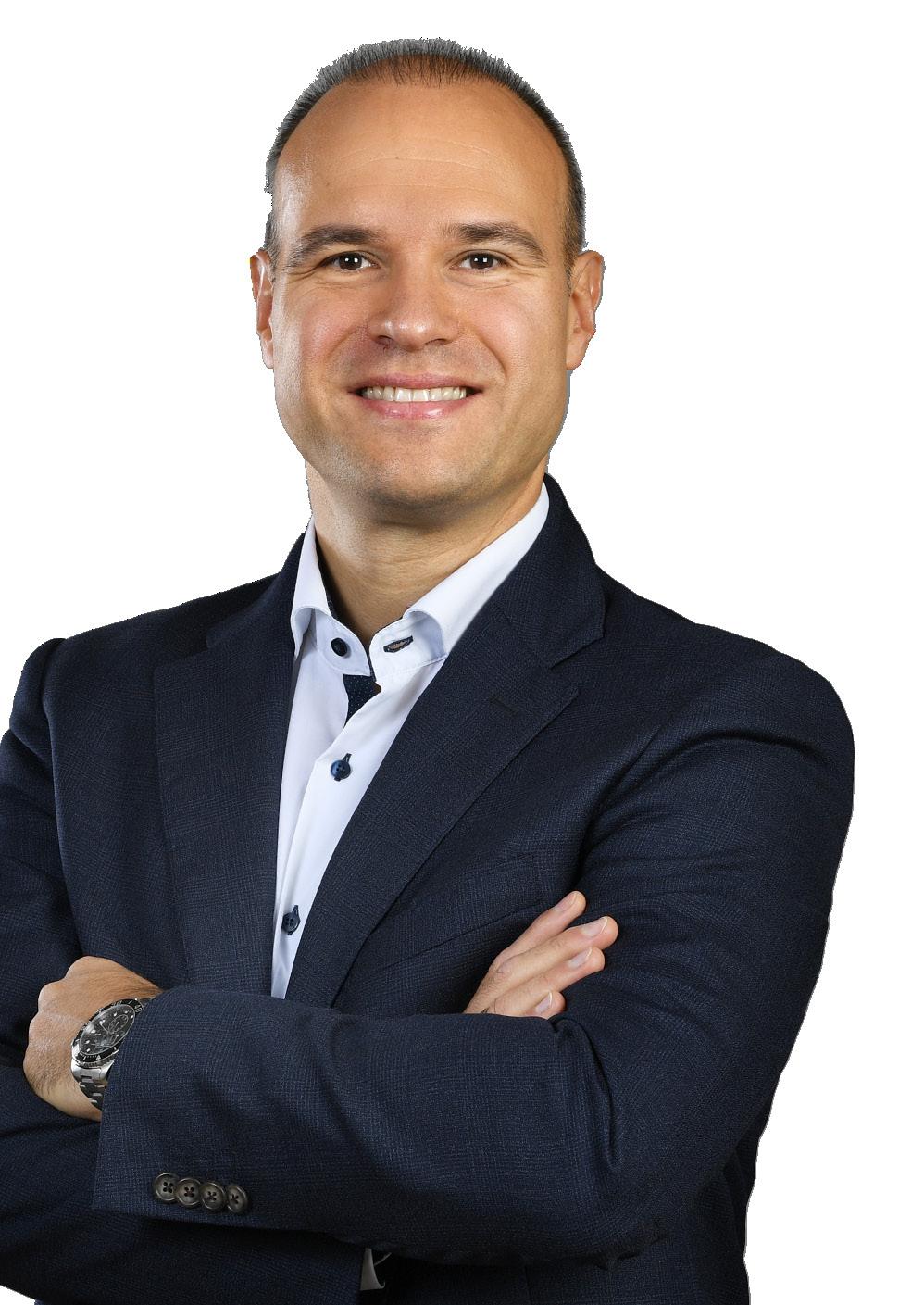
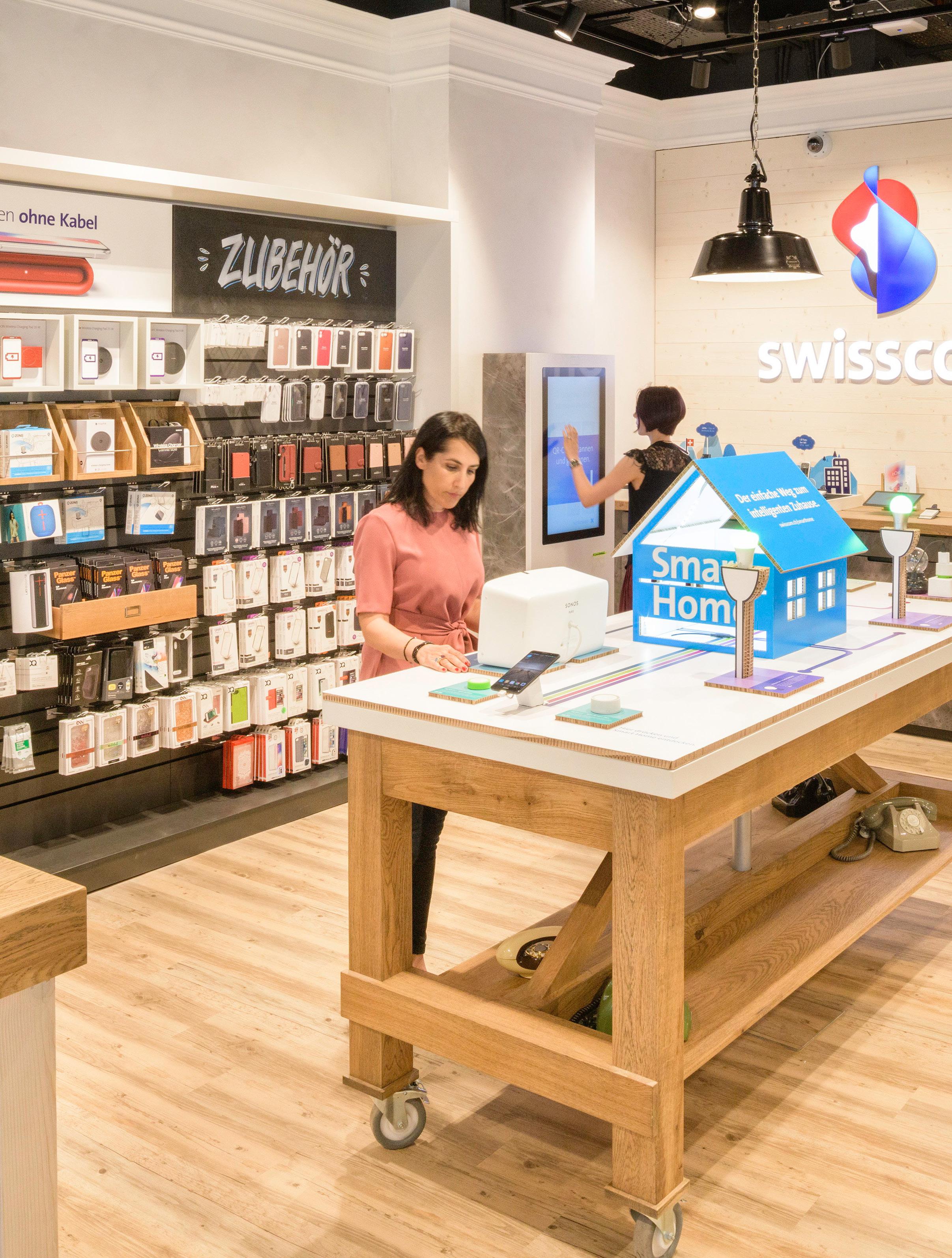
wisscom’s logistic strategy was developed during the pandemic in response to the various challenges that the situation presented. In an attempt to make the best out of the crisis in terms of learning opportunities, Swisscom used both its existing knowledge and new learnings to build the logistic strategy. Randy Drenth, Head of Logistics at Swisscom, elaborates, “The ICT, telecoms and supply chain market has been undergoing a huge transformation for many years. As a result of the global situation in the last two years, supply chain management became a top board issue. On the one side, you need resilience and stability, but on the other side, you need to explore challenges to rethink new ways of doing things and check if you are on the right path.”
Randy highlights three ingredients for any strategy execution to be a success; top management commitment, resources, and the right people. He continues, “These were my conditions to the management. They told me to see if what we were doing in Switzerland was in accordance with what industry benchmarks were doing, not only within the country but

also on an international level in terms of the challenges they were facing, the possibilities, and new learning opportunities, as well as the impact of these on cost, quality and performance. This showed huge trust in me, which I wanted to carry down through the team, the organisation, and our partners.”
Randy stresses the importance of forming key partnerships. Swisscom’s partners are treated as a part of its critical infrastructure. However, it can also be a challenge because resources are scarce.
Randy adds, “You have to stick together because SCM has become not an easy road, but if you are on

the same journey together, you will be able to pull through. This requires mutual understanding and trust.”
In preparing tenders, Swisscom was able to learn so much about itself. Randy continues, “What are the specifications? Do we really have what we need? Is that sufficient from

an international perspective? Are there requirements that other partners could fulfil? We came from the standpoint where we, as a premium ICT provider, originally made a lot of things ourselves. We had the image of Switzerland being the best and that no other country could compete. But, during the tenders, we gained respect outside of our knowhow borders. For example, where there was a chance that something could be done better by other sources which were out of our reach in the past. As the global dependency is so huge, we had to challenge our internal practices in answer to what was happening in the world, drawing upon other resources we had not used before, such as system knowhow, scale effects, and processes from companies with experience in a high number of production units. As Switzerland is small, we need to explore all of these things to help us to be sufficiently equipped for the future.
“Swisscom’s
are treated as a part of its critical infrastructure”
CTDI supports Swisscom in achieving their sustainability goals by repairing and refurbishing Swisscom‘s set-top boxes and gateways.
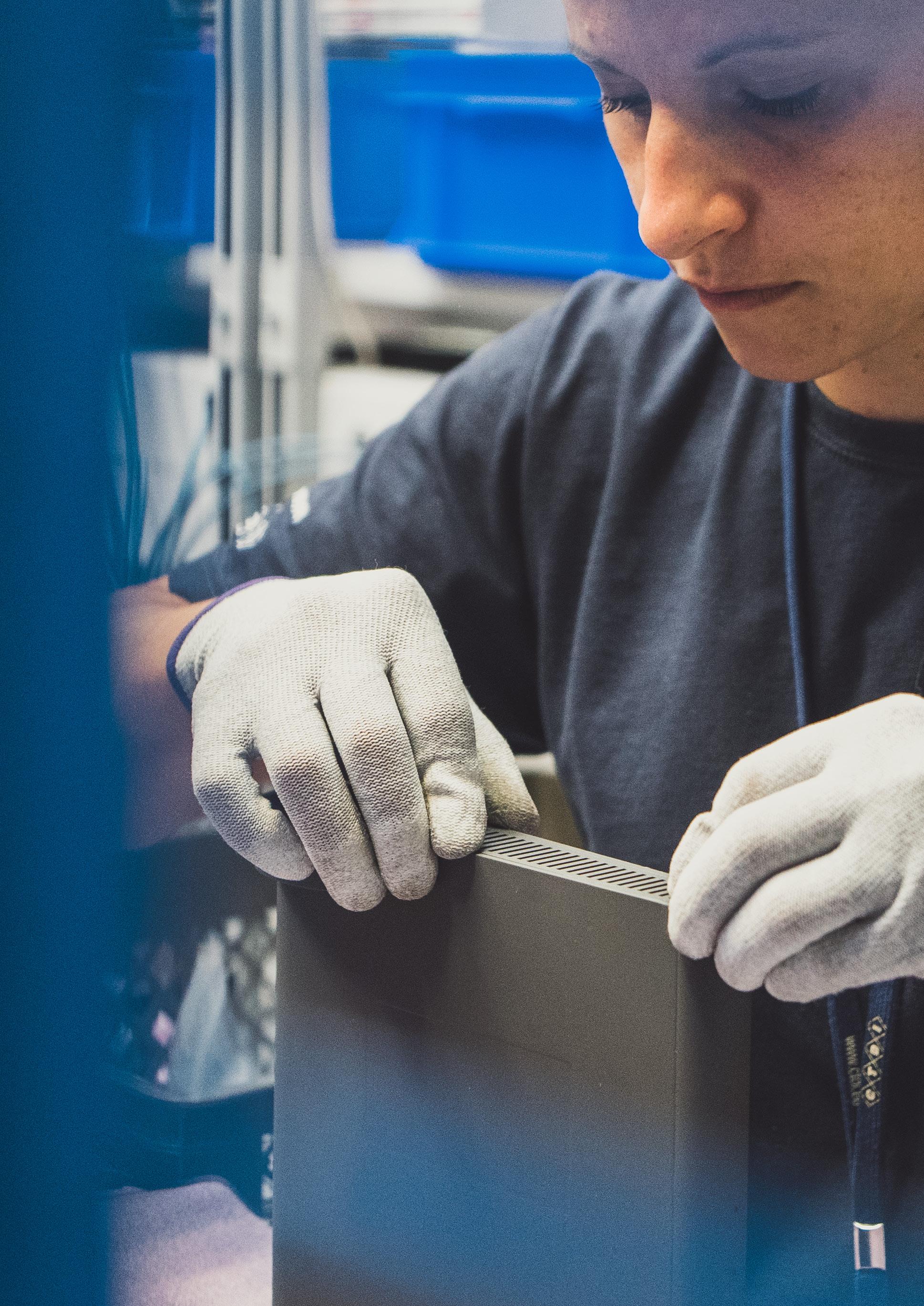
Introducing innovation and service excellence to the communications industry is our business.
Technologies we service include network equipment such as access, transmission and all mobile technologies, set-top boxes, gateways, mobile devices and consumer electronics, cash and payment systems, industrial scanners and printers.
After the tenders, the next step was for Swisscom to carry out technical proof of concepts, as well as visits, to reduce the possible number of alternatives to the ways of working. Randy says, “Doing visits during the pandemic was difficult, given the number of rules, security procedures and health considerations, but the trip contained a huge learning potential. Seeing what global best practices do, how they do it, and the challenges they face was really important for our own learning story. Mature processes, scale effects, big numbers, processes and systems enable competence and increased efficiency. We visited many sites, and it was refreshing to talk to people with so much valuable experience.”
Randy says that one of the biggest learnings was that the things they had expected to happen did not come not true, whilst other things they did not expect came true. He explains, “It was a total eyeopener for us. We exchanged learnings in a small multidisciplinary team. These impressions gave us the courage to do new things, develop new things, and test and implement them to change the supply chain or a particular partnership. This worked positively as far as our landscape of partners was concerned because they saw our decisions and the progress
we made. Some reactions were positive, with the partners wanting to come with us on our journey, whilst others preferred to stick to their own paradigms.”
In the last 12 to 15 months, logistics has been faced with increased costs and decreased availability. So, what is the answer? Randy responds, “You have to compare alternatives. Sometimes it is just a source, sometimes it is an entire chain competing. Some are resilient whilst others have difficulties, and you have to understand the reasons why. Even if they are not your partner or part of your own supply chain, knowing the reasons why will help you to be prepared for the future. The source of resilience lies often in being capable to adapt or develop.”
In terms of changing customer demand and behaviour, Randy
“During the pandemic, Swisscom built up new partnerships with international best practices in repair logistics”
says, “During the pandemic, customers stayed at home. After April, they started travelling again like they did before the pandemic, so distribution for residential, enterprise and B2B customers changed. Secondly, the number of smartphone repairs decreased, and the trend continued even after April because customers started to pay more attention
to protecting their devices, being so dependent on ICT and being faced with increasing device prices. With the device prices going up, the spare part prices also did. The market for refurbished devices is growing. Customers’ lives changed in many ways whilst the quality of the hardware devices also increased. The need for an instant repair is still there, but the
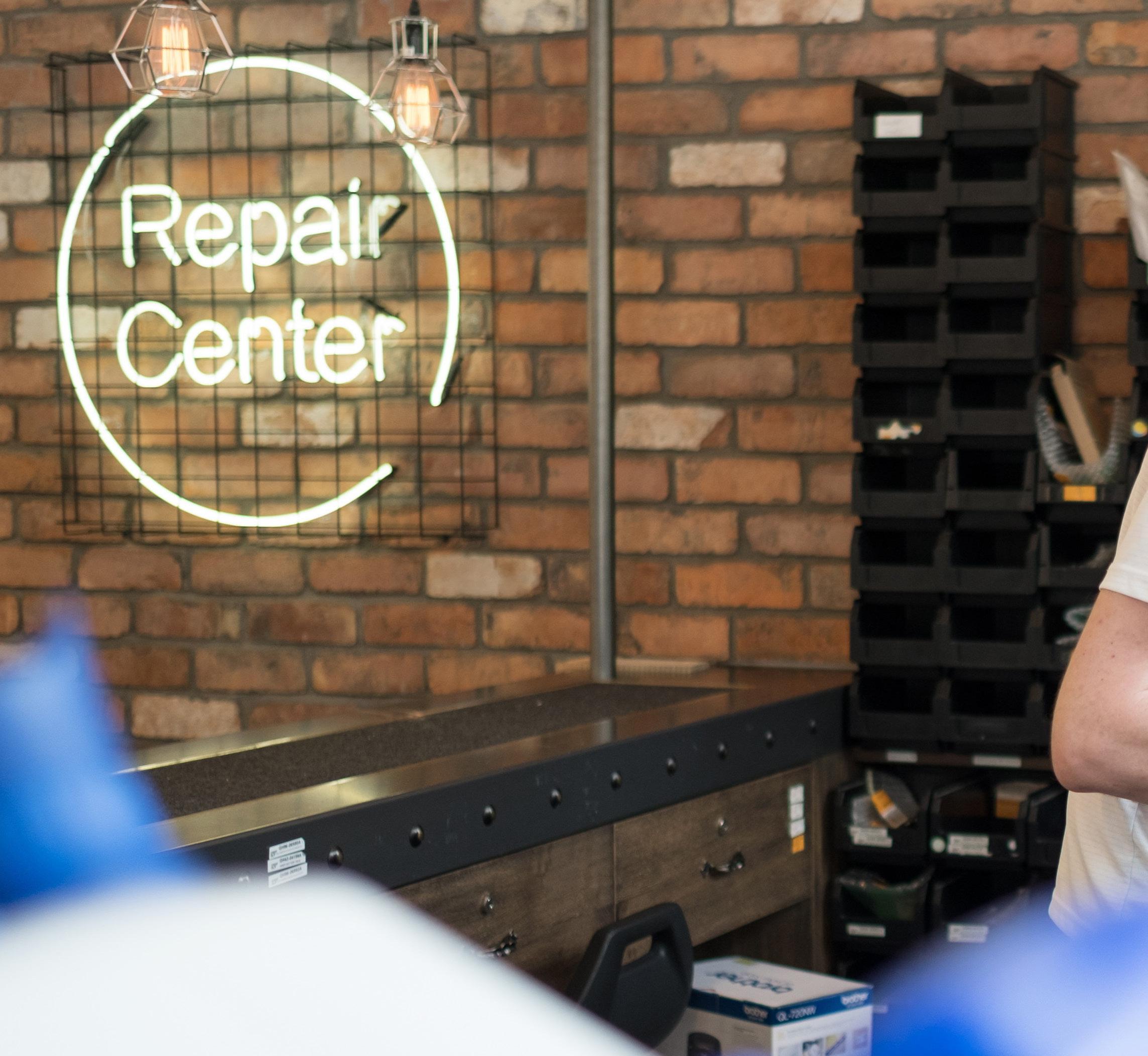
overall numbers have decreased hugely.”
In addition, the behaviour of Swisscom employees, as well as interactions with its partners have also changed as a result of the pandemic. Meetings have become shorter, with more frequent calls in between. Randy adds, “Not seeing each other physically does not mean we
cannot make contact on a regular basis. I take more calls each day now, and using these new opportunities opens up possibilities to be more agile and quicker to market.”
Employees are no longer expected to travel huge distances for a single meeting. Instead, they now use the time more intensively to achieve results, perhaps combining several meetings or site visits. Randy says,

“For many people, this is a huge change. It saves a lot of time and kilometres. We do not impose rules, but search for flexibility to work together on quality time and issues. If you do it correctly, it reduces a lot of stress. We had to change during Covid, and we had to talk about it openly. For instance, what is agile to us? How do we implement it? How are scrum meetings organised? It is also about reducing or cancelling meetings if you don’t need them.”
strategy, for example. We reuse, resell and recycle materials, as well as reducing returns because the forwarding is improved with greater transparency. We made this an agenda point with all our partners. If there is a pressure to be more efficient when it comes to returns, you automatically reduce waste.”
Swisscom established a new hub on the recycling side. Randy says, “We enabled the chain to get to
Cutting down on travel also ticks a box when it comes to sustainability, which is a huge part of Swisscom’s core strategy for the future. Randy explains, “We believe sustainability is an asset, so it is not just an add-on. If you list sustainability as a core part of your strategy, it means reducing waste, reducing kilometres, and looking for more sustainable ways for transportation. Sustainability then becomes a core issue, and you will add value if you do it correctly. We put circular economy at the core of our work in terms of our recycling
know our processes by making them transparent, which meant we could bring old materials out of the network to them, so they could process them in a proper way. The materials they process can be sold as raw materials on the market again. It is a total recycling chain. It has been quite a transformation and is still not entirely done, but it has been a huge success so far. The cost of selling raw materials on the market is many times higher than the cost of the processing. Having the right partner and the right
“The cost of selling raw materials on the market is many times higher than the cost of the processing. Having the right partner and the right process in place has enabled us to extend revenues over costs”
Thommen is a proud recycling partner of Swisscom . Thanks to the close coopera tion with Swisscom, our experience and state-of-the-art infrastructure as well as a committed team, we have taken recycling to the next level with Swisscom. www.thommen.ch

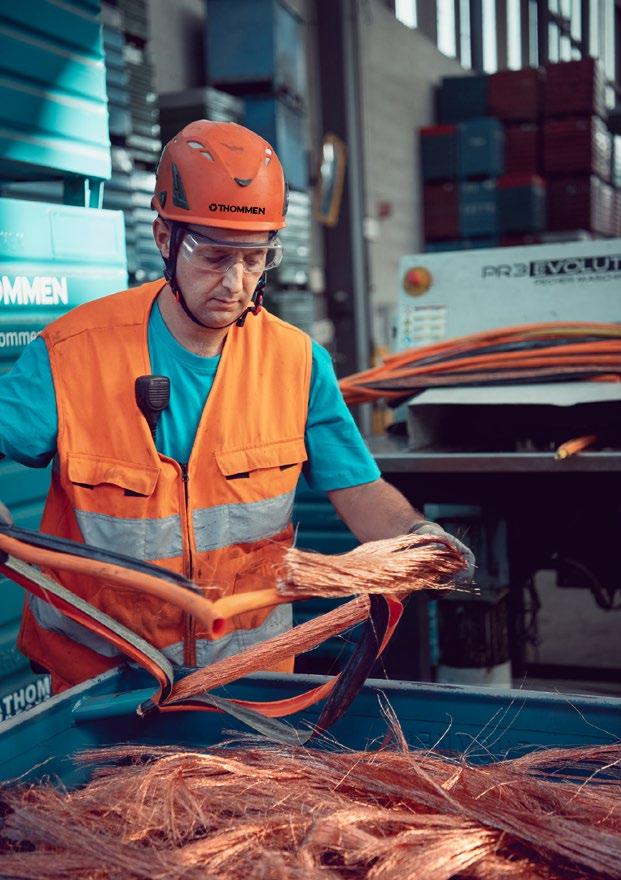
We have been cooperating with Swisscom for more than 20 years as a logistics partner. We deliver about 400 items per day which Swisscom and its business partners need to expand the network. We are committed to our motto of “Ordered Today, Delivered Tomorrow”. In addition to our extensive standard range of cables and LAN products, our logistics business is also an appealing option for many Swiss companies. Reduce your operating expenses and rely on a business partner with expertise, 99%+ availability and a 24-hour emergency service. Contact us to arrange a consultation.


Weissackerstrasse 7 | 3072 Ostermundigen www.kablan.ch | kablan@kablan.ch
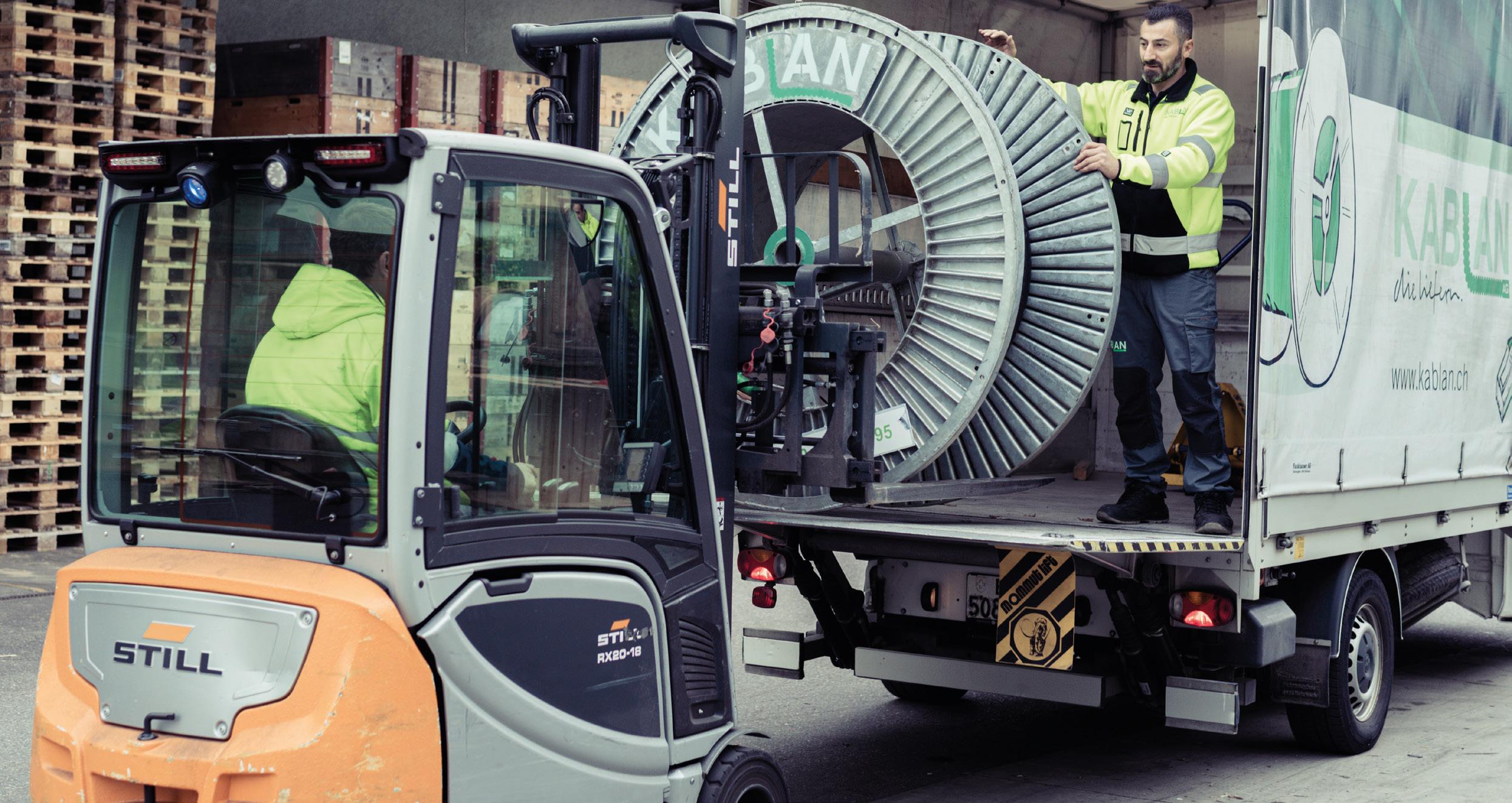
process in place has enabled us to extend revenues over costs.”
Dedicated logistics partners handle all of Swisscom’s network infrastructure. Randy continues, “For almost 20 years, we outsourced our most important network operations for cabling and infrastructure logistics to partners. We have been working with them for many years. They do the coordination in the chain and have a lot of knowhow when it comes to buying materials also for neighbour industries, so we have given them more responsibility over the years, which has helped us in terms of availability in times of major disruption.”
During the pandemic, Swisscom built up new partnerships with international best practices in repair logistics. This grants access to unprecedented process and engineering knowhow, which adds weight to Swisscom’s sustainability agenda. Randy adds, “As they dispose of global resources, multiple OEM and operator contacts, as well as experience from engineers with
a good understanding of the different technologies, we have been able to challenge ourselves and bring us further in terms of technical process competencies to refresh and refurbish materials.
As a market-leading operator with global suppliers and customers, we depend much on what is best practice on a global scale. As quality is so important in our network, we need partners that have local glasses, but can also bring knowhow from their global experience to help us to improve.”
With mass-market logistics providers, Swisscom has longyear partnerships, enabling the company to stably fulfil customer demand during lockdown and supply crisis times in the past two years. Customers did not experience any changes during the pandemic compared to the time before. Randy explains, “Together with our partners, we work closely on digitalisation and standardisation of logistics processes. Shop delivery of Swisscom is highly efficient and sustainable, as it includes return and waste management in an
“Dedicated logistics partners handle all of Swisscom’s network infrastructure”
overnight loop procedure that mainly uses railroad transportation and only trucks for the last mile. The shipping containers reduce logistics efforts in the shops to enable focus on the customer, and are equipped with newest technology for testing new methods for track and trace. Through our collaboration with logistics providers, we can more easily adapt to market changes and offer new services to customers together.”
easier or even source such highly competitive processes.”
The number of shipments to customers in the last five years has decreased, given the fact that services have become less dependent on hardware, and cloudification and virtualisation mean less decentralised hardware is needed. Randy adds, “Because the customer is using more digital services, logistic efforts are
So, what’s next for Swisscom in terms of increasing digitalisation and reaping the fruits of its labour? Randy answers, “Digitalisation goes on. We need to standardise in order to be compatible on a process level. We have a lot of own processes, and standardising those will increase quality and efficiency. In the IT world right now, there is a movement from hardware towards software as well as service. This means the customer is less dependent on hardware, as many innovations are on a software level. If you have the right partners with a global knowhow, they will enable you to standardise
reduced, and it also becomes a sustainability case too.”
As for the future, Randy believes that next to resilience, data security and data privacy are becoming key to all logistics providers and partners. Customers increasingly use devices for financial and other personal needs. He explains, “There is no alternative that working with customer data has to be organised in a safe and dedicated way. Logistics is not just about the hardware, but also includes software, apps and customer data. For example, when
“Together with our partners, we work closely on digitalisation and standardisation of logistics processes”





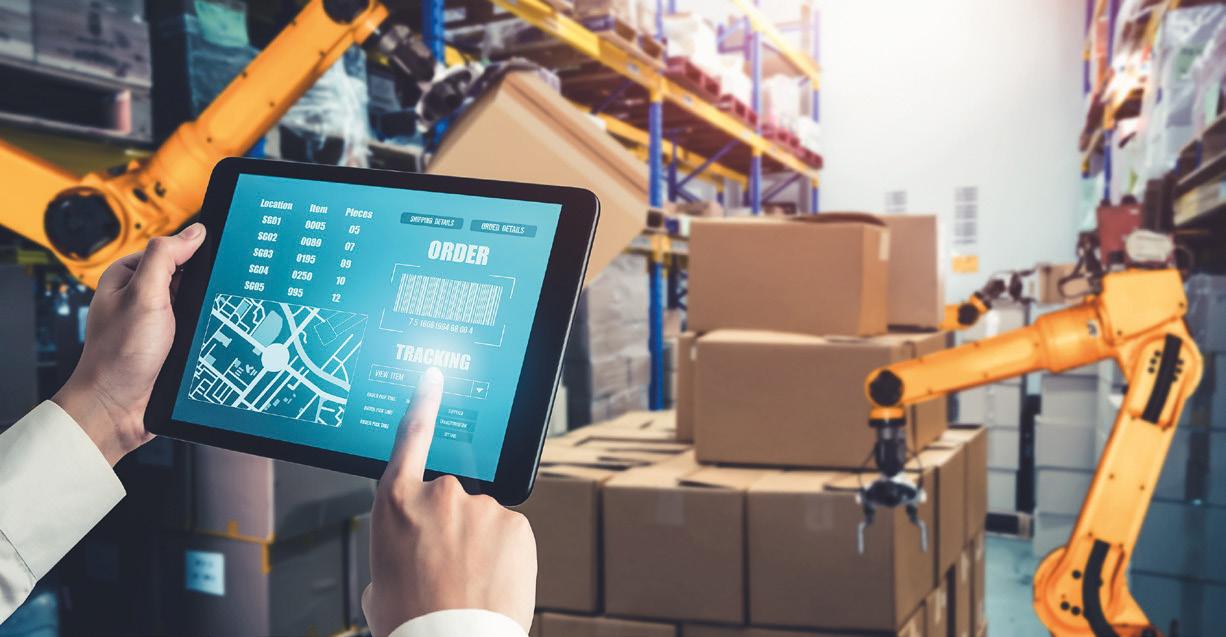

there is data on a broken device, you need safe logistics processes in place, especially when there is a crossing of a container, border or a different organisation, which is daily business in supply chains. It needs to be secure like banking processes, and track and trace is key, especially in return, but also in staging, wiping and recycling processes.”
As the most sustainable telecom organisation in the world, Swisscom needs to deliver the best logistics to fulfil its core strategy. Randy concludes, “A focus on being the best is part of the core work that my team and I do every week. It is exciting work, and I am very proud to be part of such a forward-thinking organisation.”
For further information on Swisscom, visit www.swisscom.ch
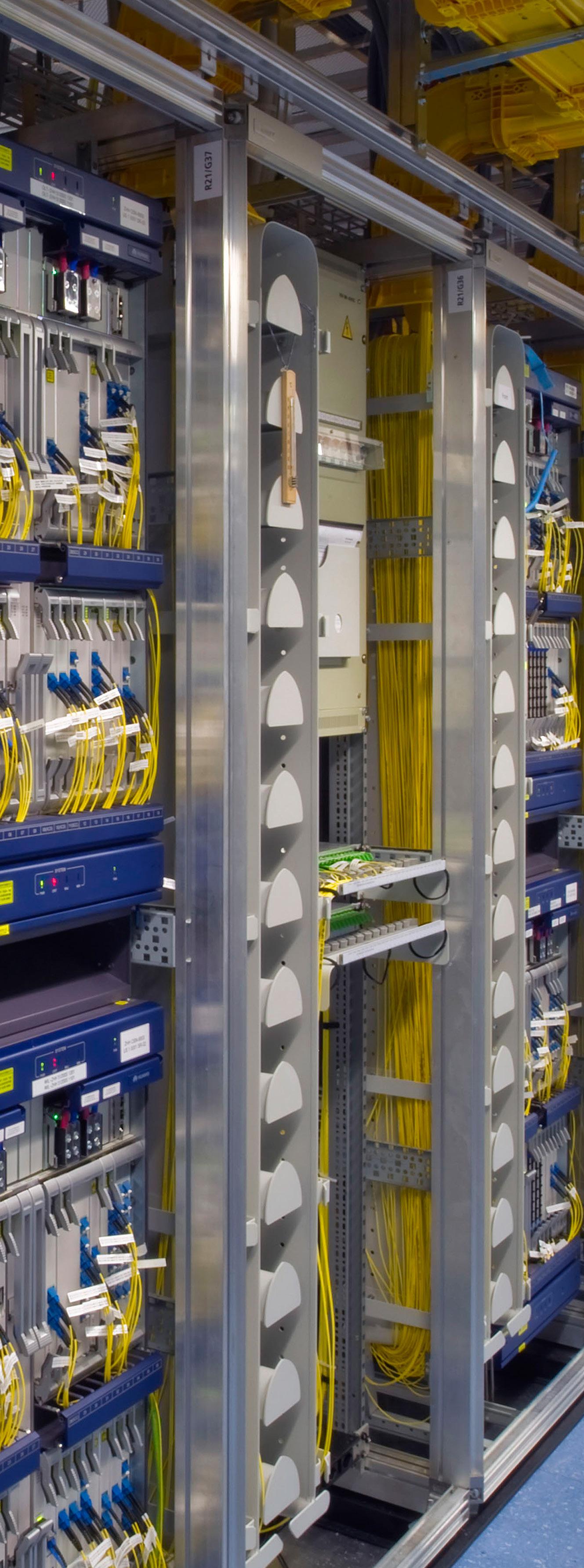
“For almost 20 years, we outsourced our most important network operations for cabling and infrastructure logistics to partners”
www.swisscom.ch